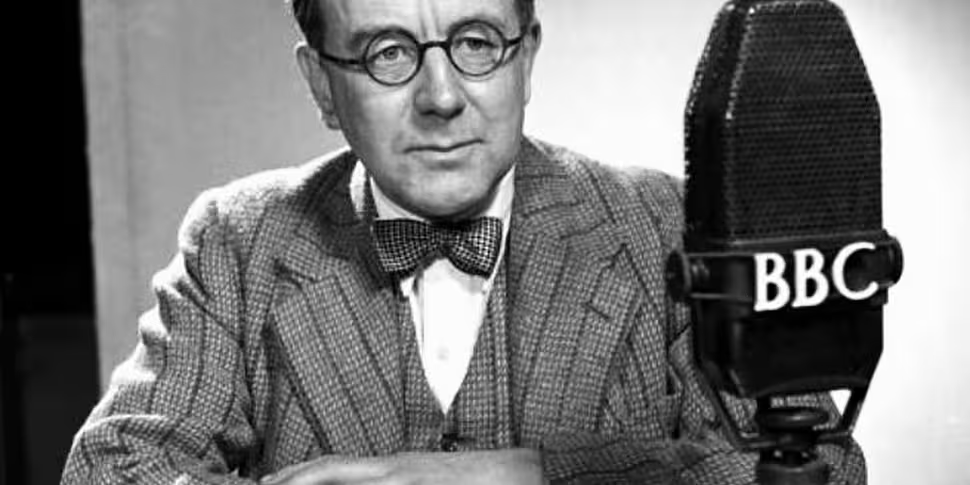Alan John Percivale Taylor, 1906-1990, was an English historian, whose work had a significant impact on the history of both the nineteenth and twentieth century.
He was born on 25th March, 1906 in Birkdale, Lancashire in the north of England. His early life experiences were dominated by the Great War and the attitudes of his parents, who were pacifists. With this background, his dissenting nature is perhaps unsurprising.
He received his education in Quaker schools, where his separation from the traditional norm became even more pronounced. However, he differed from his peers in his religious beliefs, that is to say, as an atheist, he had none.
However, his outlook and spirituality remained close to their teaching and he credits them with his two beliefs in life, as he stated himself - 'I am no better than anyone else and no one else is better than me.' His schooling whetted his appetite for history and this led him to attend university in Oxford, where he achieved first class honours, much to his surprise.
During these fledgling years he had brief flirtations with the Communist Party of Great Britain. However, his disenchantment with their handling of the General Strike, in 1926, saw the beginning of his long standing association with the Labour Party. He followed the lead of his father in this respect, who was the party’s representative on the Preston Town Council.
Ultimately though, Taylor learned that his mind was too anarchic to fit into any system of thought.
AJP Taylor- 'an unusual kind of star'
Following a brief stint in the legal profession his academic career began in earnest, as he quickly acquainted himself with the 19th century. His first two books dealt with Italian unification and Germany’s position in colonial affairs. Inevitably, his study during this time would then shift towards the causes of the First World War.
As his command of this period became more pronounced he moved away from the traditional ‘revisionist’ teachings of the age, as his research suggested that perhaps the German Empire was not merely a victim of circumstance.
Rather, he placed the emphasis upon the foreign policies of all the European superpowers. Even at this early stage, Taylor’s commitment to truth and structure saw him go against the grain of historical research.
These teachings were delivered in a series of lectures in Manchester University, where he was employed at the time.
This gained him recognition from Oxford, where he subsequently obtained a fellowship. His works ‘The Hapsburg Monarchy 1809-1918’ and ‘The Course of German History’ were completed in this time. They reflected Taylor’s disposition as an historian. He was obsessed with uncovering cause and reason within history. Even if he often found none, his search was unrelenting.
‘The Struggle for Mastery in Europe’ was Taylor’s final submission on 19th century Europe, it was a comprehensive account of European diplomacy from 1848-1918. It was followed by ‘The Trouble Makers’, which formed the subject matter for his Ford Lectures, a highly prestigious honour that marked an enduring achievement in the life of Taylor.
However, his most remembered work is ‘The Origins of the Second World War.’ This book proved his most controversial and infamous piece of work.
As the title suggests, it was concerned with discerning the causes of the Second World War. The contention surrounding it was in relation to his approach to the motivations of Adolf Hitler during this time.

Chamberlain, Daladier, Hitler and Mussolini before the signing of the Munich Agreement, 1938
Taylor represented the first historian of his age that appeared willing to separate the moral question from that of the political one. Up to that point, it seemed that all historians’ approach to this issue was pre-ordained.
As he stated himself 'People regard Hitler as wicked; and then find proof of his wickedness.' Given that he rose to power out of the ashes of World War I, and the onerous Treaty of Versailles, Taylor proposed that it was these factors which contributed to the Second World War, rather than a particularly malevolent plan on the part of Hitler.
It did take the evil of Hitler to subsequently commit the horrible atrocities that occurred, but he considered this of little relevance in determining the origins of the conflict.
This is not to suggest that Taylor was sympathetic to Hitler, far from it. However, he approached his intentions in a fair manner without national bias, that he undoubtedly held, and concluded that it was the ineptitude of all European leaders and the opportunism of Hitler that contributed to the war.
Unfortunately, the issue was perhaps too emotive and moralistic at the time of this books release and so it was met with much fury.
Despite being considered tantamount to treachery at the time, in modern study it is considered a viable approach with which to tackle the issue of the origins of World War II.
It is thanks to the work of historians such as Taylor that the horizons of historical study continue to be broadened. In addition to this, Taylor approached such work with an honesty of effort, with no evidence to suggest that his intention was solely to shock.
AJP Taylor- the Origins of the Second World War
‘English History, 1914-1945’ (1965), represents Taylor’s successful move towards the history of his native land, as it was received with warm acclaim. He began extensive research into a facet of history with which he had been, self admittedly, unacquainted.
In this work, he immediately addressed the question of what it was to be English, separating the term from Great Britain, the United Kingdom and the British Empire, displaying his staunch nationalism.
While potentially at the risk of sounding condescending, he unashamedly points out in his preface that this book is about nothing other than 'thirty years in the history of England.'
It demonstrated his love for England and in particular its citizens. He stated his concerns that previous volumes had concentrated on the upper classes, he wanted to write about the history of the English people. He achieved this goal, as the book has gone down as a fine example of popular history.
Taylor also suggests that the political leaders had failed its people during this time, being particularly harsh in his treatment of Churchill during this era, as England fell from its position as diplomatic superpower. An example of this is Taylor’s approach to Churchill’s rise to Prime Minister in May 1940, where he describes how he effectively seized power. Taylor associated his famous determination to achieve ‘victory at all costs’ with 'placing the British Empire in pawn to the United States.'

Hugh Trevor Roper, 1914-2003, with whom Taylor shared a long standing academic rivalry
Taylor continued to produce books, with short accounts of both the First and Second World Wars published. However, the bulk of his work had now been produced. He had also been involved in TV throughout his life.
This often provided a platform for his divisive relationship with right-wing historian Hugh Trevor-Roper. His controversial approach to debating saw him axed from the BBC in the 1950s. However, he soon returned to the screens on ITV.
He also held televised lectures on both of these stations, with both proving to be huge rating successes. He was a popular journalist too, most regularly for the Sunday Express. His skilled writing and oratory brought history to the wider public. This firmly cemented his position as ‘the Peoples Historian.’
Taylor never overstated his importance within the discipline of history, yet he never feared controversy, as he remained steadfast in his beliefs and determinations. The pursuit of truth was central to his work. In all, Taylor’s treatment of history was skilfully incisive, while he always remained humble to the discipline to which he contributed so much.
Selected Bibliography
Taylor, A. J. P., ‘The Struggle for Mastery in Europe 1848–1918’ (Clarendon Press, 1954)
Taylor, A. J. P., ‘The Origins of the Second World War’ (Hamish Hamilton, 1961)
Taylor, A. J. P., ‘English History, 1914-1945’ (Oxford, 1965)
For all other 'Talking History' Book Recommendations, click here.









